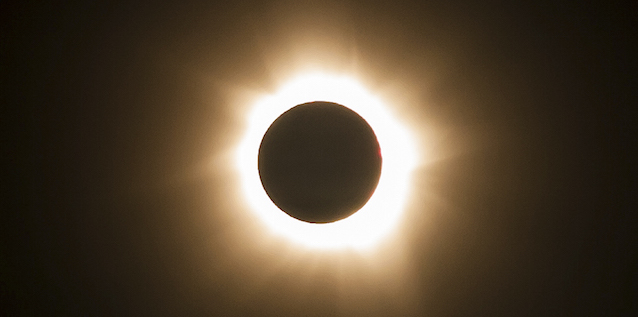Superstitions have surrounded the eerie solar eclipse since time immemorial. And now, for entirely scientific reasons, it turns out we have good reason to fear them. Earth’s biggest solar eclipse since 1999 is happening this March, and it could cause some real disruption — thanks to Europe’s reliance on solar energy.
Of course, Europe’s ready adoption of renewable energy is generally a good thing. But the major downside of solar energy is always going to be that we cannot control when the sun shines and when it does not. Most obviously, the sun sets everyday. And the weather changes. Less gradual and less predictable, though, is a solar eclipse. Here is how the European Network of Transmission System Operators for Electricity describes what could happen:
Under a clear morning sky on 20 March 2015, some 35,000 MW of solar energy, which is the equivalent of nearly 80 medium size conventional generation units, will gradually fade from Europe’s electrical system before being gradually re-injected: all in the space of two hours while Europeans and their offices begin a normal working week day.
To understand why big changes over a short period of time can strain the grid, I like to return to this wonderful passage by Maggie Koerth-Baker, author of Before the Lights Go Out:
I like to say that the grid is a lot like a lazy river at a water park. It’s not a line, it’s a loop: power plants connected to customers and back to power plants again. And like the lazy river, it has to operate within certain parameters. The electricity has to move at a constant speed (an analogy for what the engineers call frequency) and it has to flow at a constant depth (analogous to voltage). In order to maintain that constant speed and constant depth, you have to also maintain an almost perfect balance between supply and demand … everywhere, at all times. So when one generator goes out, the electricity it was supplying has to come from someplace else. Like a stream flowing into a new channel, the load will shift from one group of transmission lines to another.
The good news is that Europe has had a long time to prepare for the eclipse and anticipate how to shift the load. But this is the first time its power grid will be under such strain from a solar eclipse, so “the risk of incident cannot be completely ruled out.” Until we find good ways of storing excess solar energy in dark times — which, by the way, is a problem Elon Musk has now jumped on — solar eclipses will always be a headache for grid operators. Let’s just hope it doesn’t become one for the rest of us. [Financial Times, ENTSO-E, Discover Magazine]
Picture: AP Photo/Tourism Queensland
